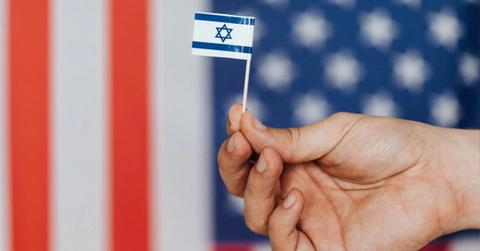 NEWS
NEWSExamining the Complexities of U.S.- Israel Relations in Today's World

March 28 2025, Published 1:52 a.m. ET
In the contemporary landscape, the relationship between the United States and Israel stands as a pivotal axis in global geopolitics. This relationship is underpinned by shared strategic interests, robust defense collaborations, and cultural exchanges that span decades, which encompass many new sweeps cash casinos. As global dynamics shift, nuanced considerations concerning military cooperation, public opinion, and diplomatic engagements shape the interactions between these two nations. The U.S. continues to play an essential role in Israel's security architecture, deploying defense systems and strategizing against potential threats from regional adversaries. Simultaneously, shifts in U.S. public opinion reflect a growing interest in diplomatic solutions, highlighting an increased desire for a balanced approach that addresses both security and humanitarian concerns. This multifaceted alliance not only influences regional stability in the Middle East but also impacts global diplomatic, technological, and cultural landscapes.
Security and military cooperation as a cornerstone
The U.S.-Israel alliance is heavily fortified by military cooperation, emphasizing a fortified defense posture against shared threats. The United States remains committed to Israel's security through comprehensive military aid, joint exercises, and technological exchanges. Recent developments have seen advancements in missile defense systems and cybersecurity initiatives, underscoring the depth of this strategic partnership. The designation of Israel as a U.S. Major Non-NATO Ally highlights the unique benefits and commitments afforded to Israel under U.S. law. Despite growing partisan debates within the U.S., this military alliance is widely regarded as a stabilizing force, promoting peace in a volatile region. Such collaborations not only enhance regional security but also signify a profound mutual understanding melding military aptitude with diplomatic finesse.
Public opinion and the imperative for diplomatic engagement
Public opinion in the United States demonstrates a fascinating evolution regarding its relationship with Israel. While support for military aid remains robust, there's a broader spectrum of opinions on diplomatic engagement. Recent surveys suggest a rising number of Americans advocate for a proactive U.S. diplomatic role in Middle Eastern conflicts. However, this inclination varies across demographic lines, reflecting generational, religious, and political differences. Notably, younger Americans show increased support for diplomatic interventions, signaling a potential shift in future U.S. foreign policy. This changing landscape is urging policymakers to balance traditional alliances with emerging public sentiment, ensuring that diplomatic measures are prioritized alongside military strategies.
Want OK! each day? Sign up here!
Addressing human rights and legal concerns
The discourse surrounding human rights within the U.S.-Israel relationship has gained significant traction. Organizations like Amnesty International have criticized Israel's actions in Gaza, calling for international scrutiny and accountability. These critiques have elicited varied responses, with some advocating for stringent diplomatic engagement, while others call for cautious legal approaches. Understanding these concerns is essential for maintaining the ethical dimensions of foreign policy, emphasizing the importance of addressing legal and humanitarian issues alongside strategic interests. This dialogue underlines the complexity of managing alliances in a manner that respects human rights and legal standards.
Cultural and technological interactions - Beyond defense
Alongside defense and diplomatic endeavors, cultural and technological exchanges serve as significant pillars of U.S.-Israel relations. Events like the Maccabiah Games highlight the cultural bonds and people-to-people connections that reinforce this bilateral relationship. Additionally, collaborations in technological domains, particularly in space exploration and innovation, showcase a forward-looking partnership that transcends traditional defense ties. Such engagements reflect a shared commitment to progress and innovation, enriching both nations' strategic and cultural fabric. Further insights into U.S. cultural and technological exchanges with Israel demonstrate how these interactions not only enhance bilateral connections but also project a united front in innovation and cultural diplomacy to the global community.


